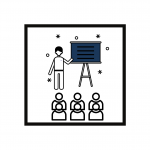



















Eligibility Criteria- 10+2 or equivalent from a recognised board. Physics, Chemistry, Biology, or Mathematics as the main subjects of study at the 10+2 level, A minimum aggregate score of 50% (45% for SC/ST/OBC candidates) at the level of graduation, Candidates appearing for their final 10+2 examination are also eligible to apply for the course on a provisional basis. Bachelors of Occupational Therapy, also known as BOT, is a bachelor's degree programme in the field of medicine. The course has been structured to focus on practices of prevention and cure along with rehabilitation. It teaches the students to tackle the physical, emotional as well as mental problems of students and provide a universal cure for the problem or disease. In these programmes, students learn about means to cure patients by modifying the environment of the patient, educating them, and teaching them how to lead a regular life. Occupational Therapy also focuses on ergo-medicine to promote alternative medicine methods. BOT course has various specialisations to choose from such as Pediatrics, Hand Therapy Adult Rehabilitation, VisionRehabilitation, Community Consultation, Assisted Living, etc.
Master in Occupational Therapy (MOT) is a 2- year post-graduate course in which students learn how to help people with disabilities, recovering from injury, or with ongoing conditions to overcome barriers, teaching alternative techniques to achieve a given task and facilitating skill improvement. During the course, students will learn about theories related to daily-tasks of people, environmental analysis, knowledge about the development of human capabilities, and the ways in which injury and disrupt them. Master in Occupational Therapy also provides students with an opportunity to gain hands-on experience with real clients. Candidates wishing to apply for a Master's in Occupational Therapy course need to meet minimum eligibility which is a 10+2 qualification with a minimum aggregate score of 45- 50%, and graduation (Bachelor in Occupational Therapy/ Physiotherapy), including 6 months of internship. Admission to the Master of Occupational Therapy (MOT) is either through entrance exams or on the basis of merit.
1. Christian Medical College, Vellore 2. Guru Gobind Singh Indraprastha University, New Delhi 3. Jamia Hamdard University, New Delhi 4. Swami Vivekananda National Institute of Rehabilitation Training and Research, Cuttack 5. Pt. Deendayal Upadhyaya Institute of Physically Handicapped, New Delhi 6. Rajiv Gandhi Paramedical Institute, New Delhi 7. Bihar College of Physiotherapy and Occupational Therapy, Patna
Common occupational therapy interventions include helping children with disabilities to participate fully in school and social situations, helping people recovering from injury to regain skills, and providing supports for older adults experiencing physical and cognitive changes. Occupational therapy services typically include an individualized evaluation, during which the client/family and occupational therapist determine the person’s goals, customized intervention to improve the person’s ability to perform daily activities and reach the goals, and an outcomes evaluation to ensure that the goals are being met and/or make changes to the intervention plan.